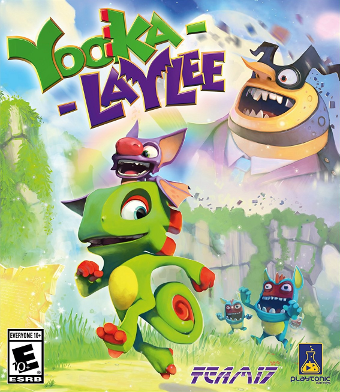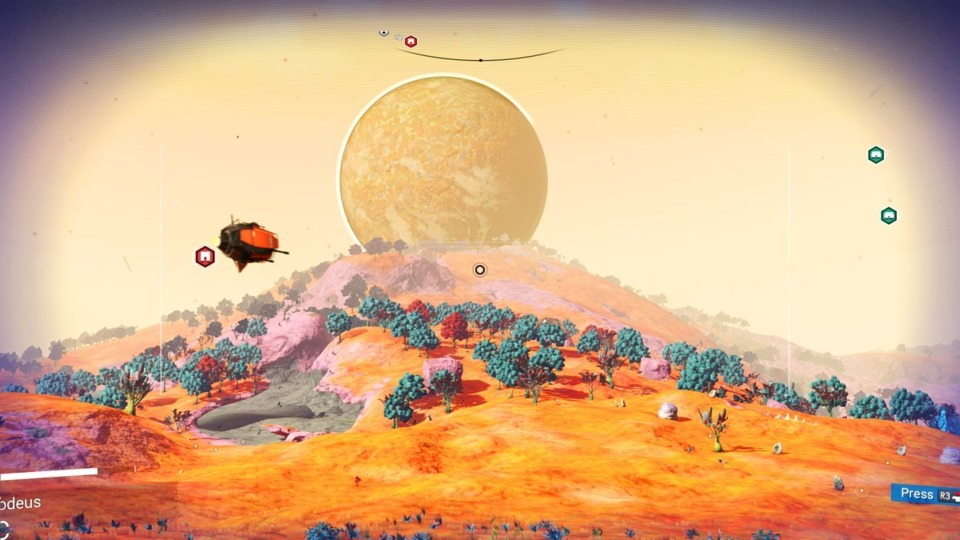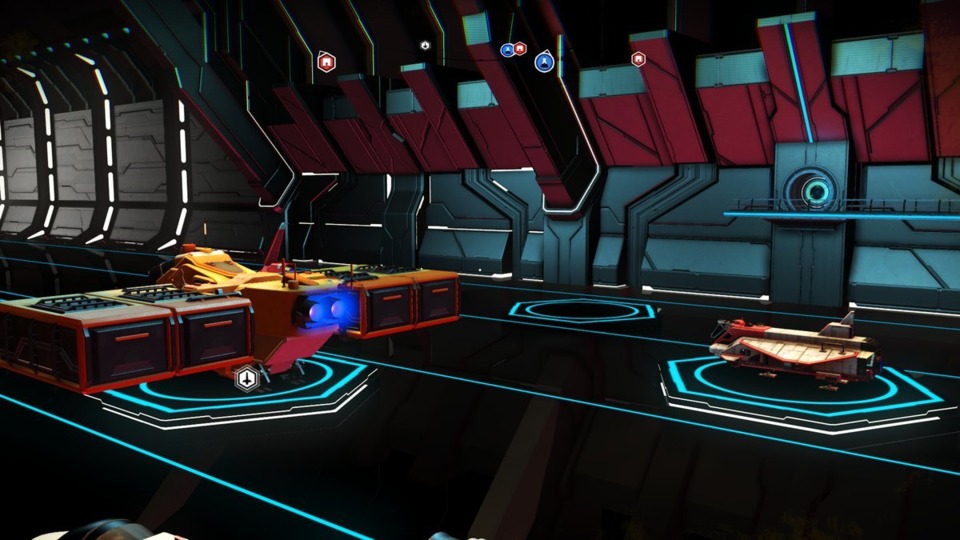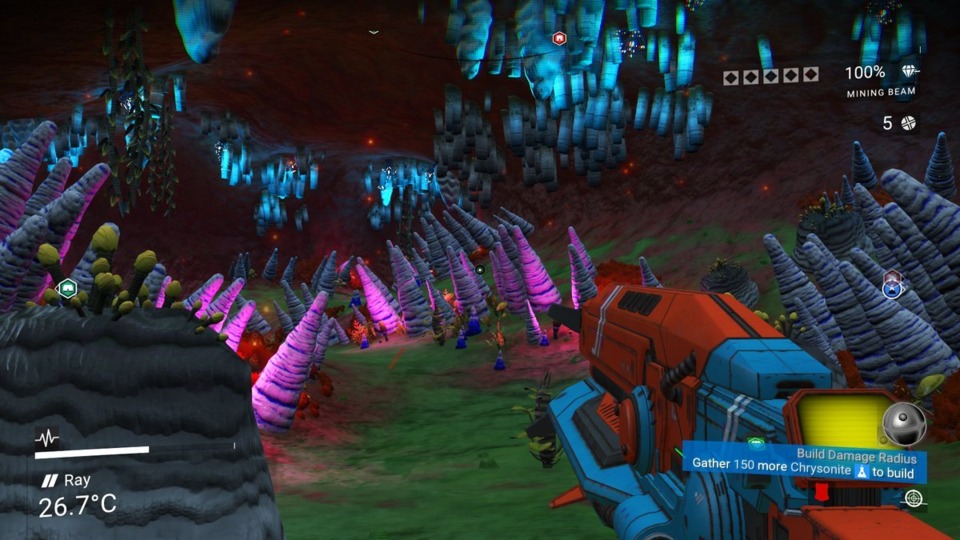All-New Saturday Summaries 2017-04-08
By Mento 0 Comments
April's shaping up to be a suspenseful month. We're still a while away from E3, of course, but it feels like we're getting leaks - intentional or no - more and more frequently weeks before the event begins. Like all that new data on the Microsoft Scorpio, which I imagine would've normally been the sort of info kept under wraps until Microsoft's E3 conference. "Leak" is probably the wrong word for cases like this - perhaps closer to an industry-wide apathy towards the practice of holding something back for E3. I sort of get the impression most developers are done with E3; it was historically meant to work as a bridge between the video game industry and the professional journos that report on it for the sake of consumers, and the developers are getting much better mileage out of addressing those consumers directly - in particular the impressionable streamers and YouTubers that are easier for a PR team to control with freebies and attention. Right now, the press still has more privileges at the now-public event than the enthusiast Let's Players, but even that might change in the future. As someone with more in common with the latter, I'm not really sure how I feel about this ongoing shake-up. I'm still inclined to put my trust in those with an enforced standard of ethics in place, but I can't imagine I'll ever break into that world and I'm theoretically into the idea of developers reaching out to fans directly. It's going to continue to be a thorny issue, I suspect.

Early April also sees the release of Yooka-Laylee, the digital distribution keys for which should be heading to backers like myself any day now. Sounds like I'll still have to wait until release day to actually play it - unlike those who shelled out for physical copies - but at least it'll be pre-installed and ready to go. I'm excited, in part because this will be the first 2017 game I get to play, but the amount of mixed reviews are giving me cause for concern. I can only hope that these are issues that won't bother me too much; the N64 Rare platformers that inspired this game weren't perfect either, but they're still some of my favorite games of all time. That'll be something to discover for myself next week.
But we're not about "next weeks" here on the All-New Saturday Summaries, but rather the week that just was. With that in mind, here's this week's new content:
- The Top Shelf covered a number of lesser known games as well as a few games like Final Fantasy X-2, Primal and Drakengard that have something of a shaky reputation. Despite this, half the featured games this week were considered for the second round, so I'm probably still erring on the side of magnanimity. Playing a whole bunch of ~15-year old games for the first time this Summer will definitely be a trip. I'm just hoping this ailing PS2 is up to the task. (Also: We just hit the halfway mark! Yay!)
- The Indie Game of the Week is the delightful but superficial Doki-Doki Universe, a game about friendship and self-discovery that drew more parallels with the featured game below than I was expecting. Sometimes a game has such a big heart that I'm willing to forgive a lot. It would be like... criticizing a puppy for not developing a video game with an acceptable baseline level of challenge for its puzzles. (I'm great at analogies, thanks for asking.)
No Man's Sky

All right, it's time for me to weigh in on this divisive game. I wasn't expecting to dig into it so soon - I barely have enough time or money for the universally-beloved games I badly want to play, let alone gigantic messes like this - but it was unexpectedly (all right, all too expectedly) cheap. In fact, I bought it along with last week's Saturday Summaries subject - Indie platformer Ginger: Beyond the Crystal - and this proved to be the cheaper of the two.
No Man's Sky is essentially a procedurally-generated space trading/exploring game in the vein of Elite and many others of that ilk, where there's no evident finishing line but an endless chain of short-term goals to pursue. You're free to land on a planet and either strip-mine its most valuable resources, explore a bunch of prefab structures for new blueprints or valuable trade items, scan every species of fauna for a massive zoological bonus, or pick fights with the planet's "space cop" Sentinels for various gains. You're almost always working towards earning bank to pay for new ships or better "multi-tools": bigger ships have more cargo space and are often hardier in combat, while multi-tools work simultaneously as your scanner, mining tool and self-defense weapon while exploring. You can also upgrade and expand the inventory in your exosuit, including tools to help you survive adverse weather conditions like extreme temperatures, radiation and toxicity. There's almost always some area to improve, and for the first twenty hours of the game you can simply figure out the most effective ways to raise the money you need for these upgrades. Of course, it's hardly the kind of goal that can keep you invested in a game for long: even in a loot game like Diablo or Borderlands, the constant loop of treasure and upgrades are a means to an end.

No Man's Sky is deliberately built to have no endgame, but there are a few big goals you can work your way towards while making money and making yourself more formidable. The first, and most time-consuming, is reaching the center of the known galaxy for what I hear is a fairly underwhelming epilogue. The second and slightly more reasonable goal is following a set of "Atlas Devices" scattered across the galaxy to collect valuable red Atlas Stones - each of which requires a certain discovery "rank" to unlock which is determined by a cumulative number of milestones such as distance travelled, aliens met or money earned - which can then be used to do... something. I've been deliberately avoiding learning what these stones do, but I've been sticking the ones I have in safe-keeping for the time being. The third, and most pragmatic, is simply earning all the game's trophies, each of which is associated with the aforementioned milestones. Some of the trophies are a pain - for example, surviving on a planet with extreme weather conditions for many consecutive days, which I earned by sitting inside a shelter and leaving the game on overnight - but the Platinum trophy is realistically where I'm going to stop, if I don't burn out first (or if Yooka-Laylee shows up and takes priority).
I might also mention the base-building, since that was a recent addition and many reviews for this game won't have covered it. I actually like what they did with this idea, even if I was initially skeptical of a planet-based home base that you'd naturally leave behind the first time you hit the hyperspace button. The game works around this by giving each space station - there's one in every system, and it's where you go for trading and buying new ships - a teleporter that links directly to the player's home base. You begin by building consoles to accommodate hirelings, who then give you objectives which unlock better gear and new base utilities. I've recently installed a Farmer who lets me research and grow plants in a hydroponics bay that provide various rare materials for construction or sale. There's also the "geobays", which let me summon a vehicle to drive around on a planet, but despite having the extra inventory on the vehicle itself there's little reason to bother with it given I have a much faster and more versatile spaceship parked just nearby. The base also gives you the option of multiple storage containers, and I find myself coming home to deposit valuable and rare materials there often in case I need them later. In addition, you can also buy Freighters which follow you from star system to star system and also offer an additional amount of storage space as well as a hanger for multiple ships, if you happen to be the kind of OG that can afford multiple space-whips (not to be confused with SpaceWhippers). Given that you can find free crashed ships on planets if you don't mind the fact that they're busted to hell and have gross alien corpses inside them, I could see myself collecting a few for the sake of variety. A hauler-class ship's good for items, but not so great if I want to pick fights with space pirates.

I will say that the base-building adds a lot, even if I don't have a non-Foundation Update playthrough of No Man's Sky to compare it to. The various small fetch quests that your hirelings give you - sometimes involving rare plants on planets with certain weather conditions, or uncommon minerals - mean that you're always on the look out for more variables on undiscovered planets than you would be normally, where you're usually only seeking worlds with Emeril (the most valuable of the mineable minerals, not the TV chef) or an abundance of flora that you can log for big rewards and milestones. The Foundation Update also adds a feature that I can't imagine playing the game without: being able to construct field equipment anywhere like DIY save points and signal boosters, the latter of which can highlight a number of important locations on any given planet. In particular, they tell you where Drop Pods are: these small conical structures are what you use to expand the inventory limit in your exosuit, making them vital for explorers. This field equipment needs a bit of iron and platinum, but they're both common enough. (Side note: I was slightly perturbed by the elements the game chooses to use for specific purposes, but then every space game does something similar, even going as far back as Elite and Star Control II. It never fails to weird me out that my ship's engine is fuelled by "iron" and my weapons by "carbon". I guess fuel in the future works on the same principle as Back to the Future 2's Mr. Fusion? Just toss some scrap metal or food trash in there and you're good to go.)
I've enjoyed No Man's Sky quite a bit, considering its reputation. I think it's all too apparent that its developers had big plans for it that they couldn't quite deliver on in time, such as creatures that don't all look like the result of a game of Exquisite Corpse gone awry and much to do on planets beyond mining colored rocks, but that chill gameplay cycle of finding a new planet and logging all its creatures, or finding a wealth of treasures in an abandoned building that you located while scanning the surface from your ship, is a fairly compelling one in small doses. It's a perfect podcast game for this reason, and while I prefer my open-world games to have an end point to them, I think by the time I have all the trophies I'll be ready to move on. Still, there's nothing to prevent me from dropping back in occasionally whenever Hello Games puts out another enormous patch of an extent similar to the Foundation Update. I'd always intended to buy the game when it was cheap because - like the busted 41-slot spaceship I just acquired - it's a fixer-upper that could be amazing once fully fitted. Can't say I've been too disappointed so far, but then I never was one to hold unrealistic expectations.

